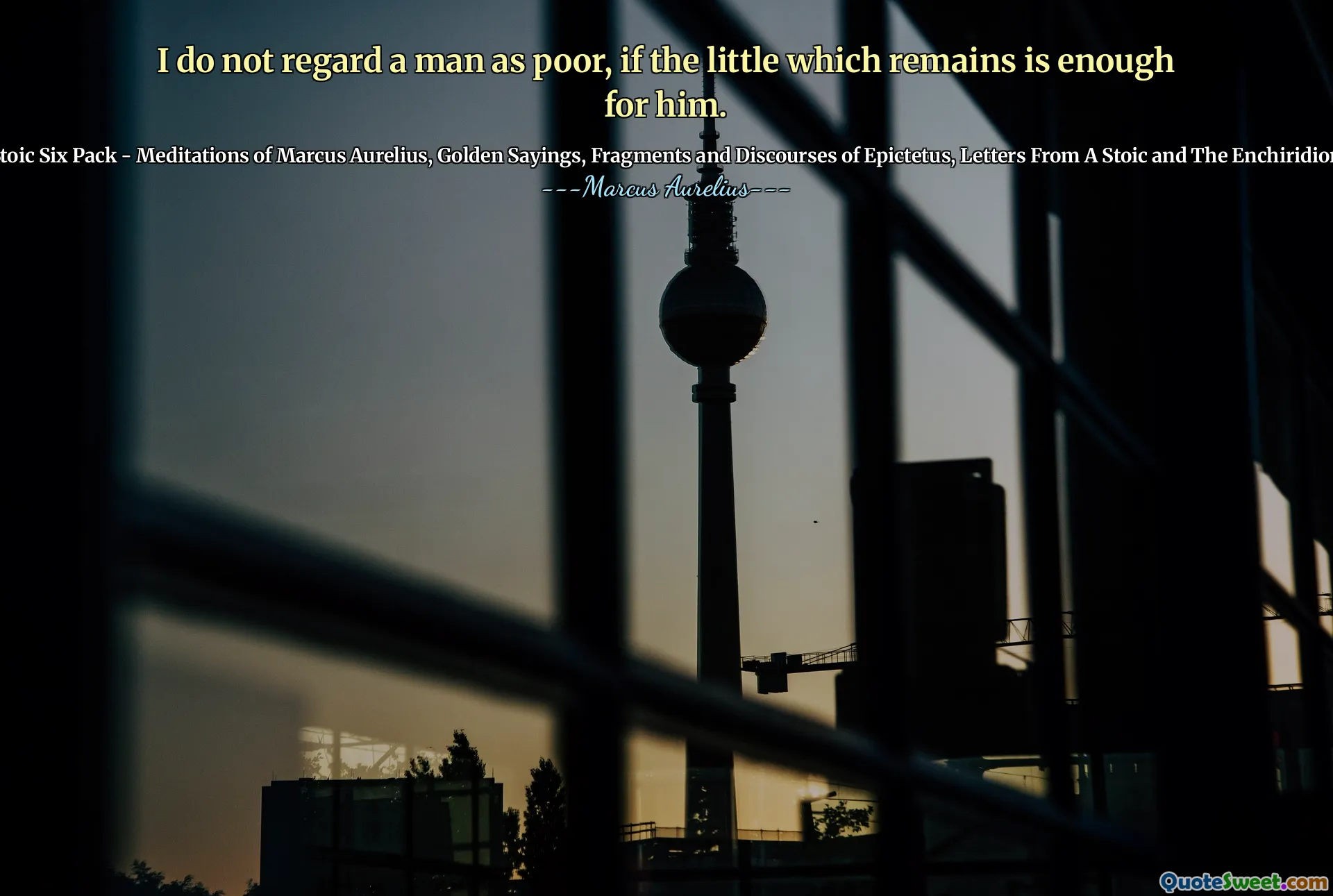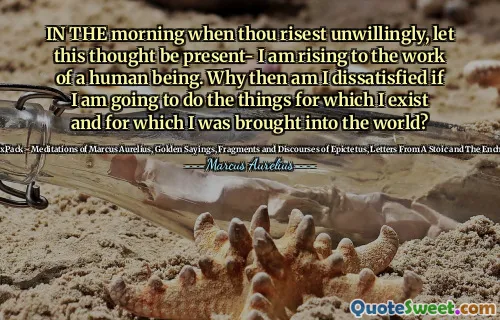
I do not regard a man as poor, if the little which remains is enough for him.
This quote highlights the Stoic belief that true wealth is not measured by material possessions but by one's ability to find contentment with what they have. It suggests that a person is not truly poor if they possess enough resources to meet their needs, indicating a perspective that values inner peace and satisfaction over material abundance. This reflects a central tenet of Stoicism: the importance of virtue and moderation in the pursuit of a fulfilling life.
Furthermore, the quote encourages individuals to reassess their definitions of poverty and wealth. By focusing on sufficiency rather than excess, it promotes a mindset of gratitude and appreciation for what one has. Stoics like Marcus Aurelius advocate for a life aligned with reason and acceptance, positing that happiness arises from within rather than from external circumstances. Thus, contentment and virtue become the true measures of a person's richness.







